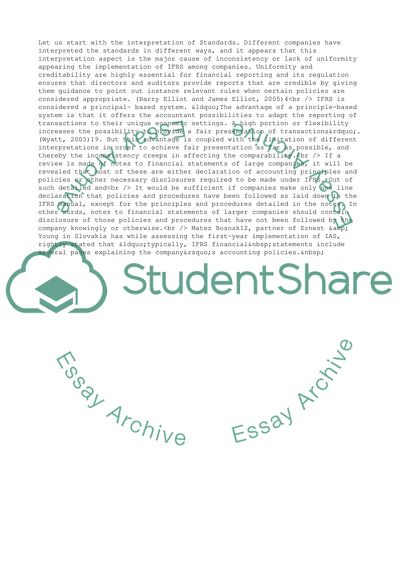Cite this document
(Application of IFRS Case Study Example | Topics and Well Written Essays - 2582 words, n.d.)
Application of IFRS Case Study Example | Topics and Well Written Essays - 2582 words. Retrieved from https://studentshare.org/business/1547290-regulation-of-financial-reporting-by-large-listed-companies-in-the-uk
Application of IFRS Case Study Example | Topics and Well Written Essays - 2582 words. Retrieved from https://studentshare.org/business/1547290-regulation-of-financial-reporting-by-large-listed-companies-in-the-uk
(Application of IFRS Case Study Example | Topics and Well Written Essays - 2582 Words)
Application of IFRS Case Study Example | Topics and Well Written Essays - 2582 Words. https://studentshare.org/business/1547290-regulation-of-financial-reporting-by-large-listed-companies-in-the-uk.
Application of IFRS Case Study Example | Topics and Well Written Essays - 2582 Words. https://studentshare.org/business/1547290-regulation-of-financial-reporting-by-large-listed-companies-in-the-uk.
“Application of IFRS Case Study Example | Topics and Well Written Essays - 2582 Words”, n.d. https://studentshare.org/business/1547290-regulation-of-financial-reporting-by-large-listed-companies-in-the-uk.


